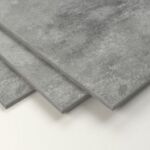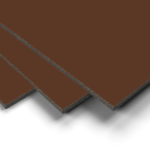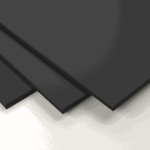
Environmental impact of fibre cement
The switch to a circular construction economy in Flanders is necessary, and not only to meet the challenges of climate change. We must also use raw materials more efficiently and reduce our impact on the environment. We want to make full use of its technical expertise to contribute maximally to the further development of sustainable building materials.
Sustainability performance materials SVK
To this end, we take a holistic approach by looking at the environmental performance of our building materials over the entire life cycle. So we not only look at the raw material and production-related issues that happen on our own sites, but we also want our building materials to deliver a favourable sustainability performance in the use and end-of-life phase.

Green deal
Important spearheads here are the principles of the Green Deal Circular Construction. In addition, we continuously improve our climate and environmental performance. A water action plan, CO2 reduction programme and the remediation of historical soil pollution are an integral part of the corporate strategy. A brand new energy-efficient boiler room (2021) with a strong reduction in energy demand is just one example in what the sustainability policy results in. A second example is the installation of a new paint spray booth with double filtration in the ventilation (2020). This way, we ensure that paint components do not end up in the environment.
Step by step, we are taking action. As a member of the VOKA Charter Sustainable Enterprise, we do not do this alone. We engage technical expertise to make technologically challenging environmental improvements succeed. For instance, we are working on a pilot study into a zero discharge statute to achieve a completely closed water circuit despite the strong heterogeneity of the company's wastewater.

Circular construction economy
The emphasis today has shifted to the development of the circular (construction) economy. By 2050, our economy must organise itself in a carbon-neutral way, with minimal resource use and minimal impact of materials. Flanders therefore faces the great challenge of drastically reducing its carbon footprint. This is possible through a circular economy. In this respect, SVK strives for environmentally responsible entrepreneurship through continuous improvement processes and well-considered innovation projects to meet the needs of customers and society.
At SVK, we have created an internal working group to think along about the role of fibre cement in the contemporary and future circular construction economy, this in redesign, innovation and the application of circular business models. Together with value chain partners and relevant authorities, we do not do this alone.
On the one hand, we want to generate more sustainable value with our building materials in the use phase. An interesting topic is the energy performance of the building envelope with fibre cement products as an integral part and how we can increase this performance.
On the other hand, we are looking at closing the loop in a high-value way. The R-strategies (REDUCE - REUSE - RECYCLE) are undoubtedly among the foundations of our vision. Demountable construction, reuse of building materials and use of secondary raw materials are important innovation projects of the research team. In this way, SVK is taking a step towards climate neutrality by 2050 with enthusiasm, innovation and our high-quality fibre cement products.

How sustainable are fibre cement products?
How do SVK's fibre cement products score on the sustainability scale? To answer this question, the environmental impact of the products is assessed against a life cycle analysis (LCA). This analysis looks at the environmental impact from raw material to waste processing stage. The results of this LCA are included in our EPDs. Comparing these results with other building elements, a construction with fibre cement proves to be a sustainable material for exterior wall structures. The longevity of the material and its low density per covering surface are undoubtedly the crucial factors that make fibre cement score satisfactorily in terms of environmental impact compared to other superstructures.
Discover our products
Request samples
Via the button below, you can easily request samples of our products. By clicking on the button 'All products', you can discover our complete product range.



